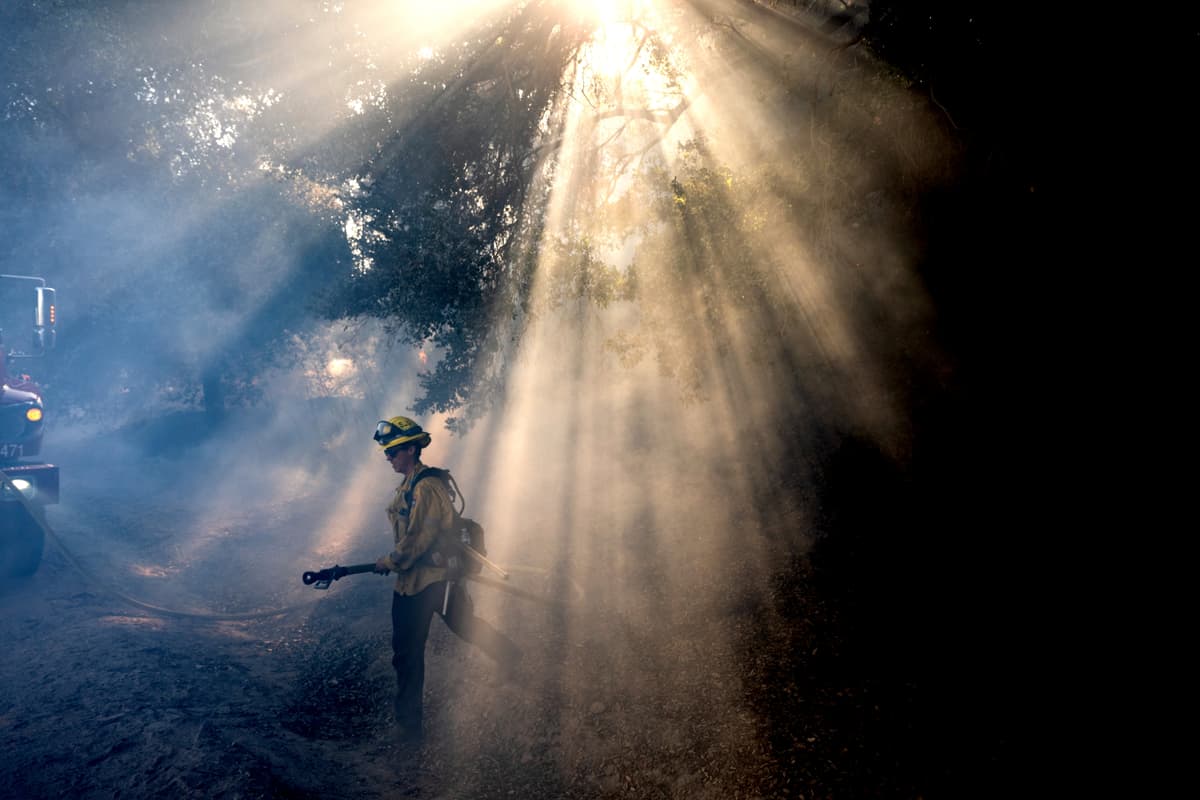‘Mass Exodus’: Volunteer Firefighters Fear New Federal Regulations Could ‘Shutter 80 Percent of Volunteer Departments Nationwide’
The Occupational Safety and Health Administration’s proposed regulations have sparked intense criticism from volunteer firefighters nationwide.

Volunteer firefighters across the country are rallying against proposed new federal regulations that they say could impose enormous financial burdens and even force the closure of hundreds of volunteer fire departments across the country, predominately in rural areas. Bowing to the pressure, the federal agency behind the proposed rules will hold hearings to address their concerns beginning this week.
The Occupational Safety and Health Administration’s proposed regulations, called the Emergency Response Standard, would replace the Fire Brigade Standard and aims to protect “a broader scope of emergency responders” from occupational hazards.
While many observers say the rules would make positive and necessary changes for career firefighters — the fire regulations haven’t been overhauled in the nearly 50 years since they were implemented — there has been widespread concern that they apply a broad brush approach that would be imposed on smaller departments and volunteer firefighters, burdening them with expensive, time-consuming, and unattainable demands.
“If you read who the rule applies to, a lot of volunteers are going to be classified as employees for the purposes of the rule,” an expert who tracks federal regulations, Shoshana Weissmann, tells the Sun. “That means they’ll have to get lots and lots of extra training.”
Most, if not all, search and rescue volunteers have separate full-time jobs, she adds. “There are limits to their time, and the last thing we should do is hamstring their ability to save people by saddling them with excessive unnecessary training,” she says. “They are already experts in this and [search and rescue] groups provide extensive training.”
The OSHA proposal has been subject to intense criticism from volunteer firefighters and even caught the attention of a group of senators earlier this year, as they called on the federal agency to add explicit exemptions for volunteer fire departments to the proposed regulations.
“Over 85 percent of America’s fire departments are either volunteer or mostly volunteer. Nearly 700,000 of America’s 1,056,000 firefighters are volunteers or paid per call firefighters,” the lawmakers, led by Senators Moran and Coons, said in a statement. “The proposed rule would apply to more workers than the existing standard and would require fire departments to furnish new reports, trainings, equipment, and health services.”
The senators noted that many volunteer firefighters have said that they lack the resources to comply and that “for many departments, implementation of this rule would render significant shares of their equipment non-compliant.”
The financial burden of the new rules would be so great that it would be “prohibitive” for many departments whose resources are already tight, and the training requirements would be “impractical for volunteers working full-time in other capacities.”
Citing an estimate from the president of the Kansas Fire Chief’s Association, Chad Russell, they note that “implementation of this rule could shutter up to 80 percent of volunteer departments nationwide.”
The rules would be “catastrophic” for search and rescue volunteer crews, the Utah Sheriff’s Association said in a letter.
“SAR volunteers are essential and must be allowed to operate with limited restriction and regulation,” the group said, calling on OSHA to exempt all sheriff SAR volunteers from the regulations. “Failure to do so will inevitably cause a mass exodus of volunteers in the system placing countless lives at risk across Utah and across the west.”
The proposed regulations, in their current form, would “dramatically change the face of the fire service in New York and across the nation,” the Firefighter’s Association of the State of New York said. “While the goal of the new rule is to protect the safety of emergency responders, it was crafted in a vacuum and does not reflect the challenges that emergency response agencies face in the real world.”
The group said the agency must balance the goal of safety with real-world restraints on resources.
“The new standard could hamper recruitment and retention efforts and even cause many current firefighters to leave the service,” the group said. “Despite its bureaucratic ‘good intentions’, this new rule could actually decrease firefighter health and safety.”
In response to the national concerns, OSHA has acknowledged that it did not have “sufficient evidence to show that the rule would be infeasible” for the volunteer fire departments and that it will hold hearings on the issue from November 12 through December 4.
“While OSHA does not directly cover volunteer emergency responders, some OSHA State Plans treat volunteers as employees under state law, which is how a federal proposed standard could affect volunteer responders in those State Plan states,” the agency said while announcing the hearing. “OSHA has received comments in response to the NPRM [notice of proposed rulemaking] from many stakeholders, including volunteer emergency responders, fire chiefs, trade organizations, and members of Congress, which raise serious concerns about the economic feasibility of the proposed standard for volunteer fire departments.”
The group of concerned senators had said that despite OSHA’s suggestion that the rules would only apply to states with OSHA state plans, that there is “widespread concern” that the regulations would be applied nationally.
OSHA said it takes those concerns “seriously” and that the firefighter pushback has provided OSHA with “crucial information that the agency did not have earlier in the rulemaking process.” OSHA did not respond to a request from the Sun for comment.
While it’s unclear the extent to which the hearing could affect the implementation of the new rules, Ms. Weissmann says that the agency has “definitely received substantial negative feedback.” She “wouldn’t be surprised if the Trump administration scraps it,” she adds, “but I think he and his people need to hear from governors and senators about their concerns in order to be sure.”
“Not everything in the rule is even a problem, but it’s just too broadly applied and heavy-handed,” she says.

